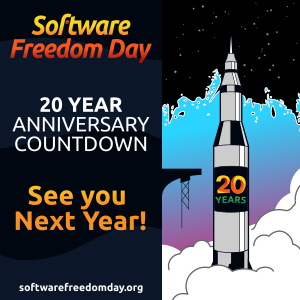skip to main |
skip to sidebar
 Amazon's Kindle application for the PC is available now (Macintosh version still in the works), and after a brief try, I can say it does in fact open the Kindle store to the Kindle-less masses. Samples of the first few chapters can be downloaded to the reader software from books in Kindle store.
Amazon's Kindle application for the PC is available now (Macintosh version still in the works), and after a brief try, I can say it does in fact open the Kindle store to the Kindle-less masses. Samples of the first few chapters can be downloaded to the reader software from books in Kindle store.
But the proprietary format used for the Kindle means that the icon for Kindle for PC sits on my desktop next to the similar Barnes and Noble application, as well as the link for Adobe Digital Editions (used for direct purchased from many publishers).
Eventually, managing books in collections segregated by vendor or publisher and accessed through separate reader software will become an obvious problem for consumers ("Now, who did I buy that book from?"). The music industry found out that consumers don't really care which music company produced an album, and I bet the players in the book business find out that book buyers are no different.
Google's announcement that it's coming Google Editions ebook system will work out of a web browser makes more sense everyday.
Powered by ScribeFire.

This week the ALA (and many libraries) are celebrating Banned Books Week. But as a recent Wall Street Journal editorial mentioned, "banning" is not the same as challenging, and it is challenging that the ALA seems to be condemning. And most challenges are not successful. The small number of challenges (and the even smaller number of successful ones) tells me that we have won this battle.
Why are we still devoting so much attention to this issue? We have limited resources, and the world has a limited attention span. Why not spend our time on a battle that we are still fighting?
At this year's Access meeting in Canada, author Cory Doctorow suggested librarians use what influence we have to promote rational copyright laws-- you know, the kind that protect the greater good of society (as copyright was originally intended), instead of using copyright to shore up old business models with increasingly draconian penalties.
The "orphan books" being fought over in the Google Book Settlement are mostly the result of continually extending copyright coverage beyond normal commercial viability. Libraries need to be making the case that publishers are not the only party at the table here-- someone has to stand up for the rights of society to it's own cultural legacy.
The old saying was that generals were always preparing to fight the last war over again, rather than adapting strategies and tactics to a changing world. We should not be guilty of the same mistake. The battle for librarians today is over laws that restrict access to information-- not through banning or burning, but through one-sided legislation.
Powered by ScribeFire.

In a big win for the open standard EPUB ebook format, Betanews is reporting that Sony is dropping its proprietary DRMed format for the Sony Reader and was going with EPUB and Adobe's server-side DRM. Sony will only sell EPUB format books from its eBook Store by the end of the year.
EPUB, the XML-based open standard of the International Digital Publishing Forum, is also going to be supported by Barnes & Nobles' Plastic Logic-sourced eBook Reader due next year.
Moving to common formats, and especially to open formats, will remove a significant barrier to eBook acceptance. Now if only that other eBook Reader would support EPUB!
Thanks to Michael Sauers for passing along the story.
Powered by ScribeFire.

OLPC spinoff Sugar Labs announced today that they are releasing "Sugar on a Stick", a version of the wonderful Sugar learning applications from the One Laptop Per Child that runs from a USB stick (based on Fedora Linux LiveUSB technology).
This will allow children to have access to their software environment from most computers at home, at school, or (maybe) in libraries simply by booting from the USB stick. Since the stick bypasses the machines' own hard disk, it can be used with computers normally running MS Windows, Linux or the Macintosh OS. It can even be used with computers without hard disks.
Not only is this a great software package for kids, but it points to a low-maintenance-cost public computing model that could open up new possibilities for libraries.
Powered by ScribeFire.
 Targeting the proprietary RefWorks software, the folks at the open source Zotero project have announced the beta release of the Zotero 1.5 citation gathering plug-in for Firefox and the launch of Zotero's web application which allow users to sync up their Zotero collections between multiple computers over the web. This gives students and libraries a free alternative to RefWorks, and one that also doesn't lock researchers into a proprietary format.
Targeting the proprietary RefWorks software, the folks at the open source Zotero project have announced the beta release of the Zotero 1.5 citation gathering plug-in for Firefox and the launch of Zotero's web application which allow users to sync up their Zotero collections between multiple computers over the web. This gives students and libraries a free alternative to RefWorks, and one that also doesn't lock researchers into a proprietary format.
Version 1.5 also delivers an improved interface, easier management of pdfs, and better integration with OpenOffice and Microsoft Word for bibliography creation.
I'll be reporting back on how this beta release handles in the near future.
Congrats to the people working on this important project!
Powered by ScribeFire.

After months of leaks and rumors, Amazon announced the second generation Kindle today, called (you guessed it) the Kindle 2.
Thinner, faster, with improved controls and more features than the first generation product, the Kindle 2 is priced the same as the outgoing model.
It's interesting to compare the evolution of the Kindle with the iPod. Although storage on the Kindle 2 is greater, the company points out that books purchased for the Kindle can be re-downloaded wirelessly at any time, meaning that local storage is less of an issue. The advances in mobile technology in the years since the debut of the iPod now permit this approach, one that still isn't showing up on the iPod.
The Kindle 2 adds an "experimental" text to speech feature. The device saves the user's place in the book and allows users to switch between reading a text and listening to it. Depending on how well, or seamlessly, this works, it could truly be a revolutionary feature.
It looks like Amazon paid attention to the complaints about the original Kindle and is also trying to drive innovation in the e-reader market. With cheaper readers like the Foxit's e-Slick coming to the market, Amazon looks to be taking steps to maintain it's place atop the high-end of the e-reader market.
 The use of mobile phones as ebook readers in common in Japan, and is growing in the US and elsewhere. A number of publishers are making the leap (last month, for example, Books on Board announced their catalog of 20,000 books would be available for the iPhone).
The use of mobile phones as ebook readers in common in Japan, and is growing in the US and elsewhere. A number of publishers are making the leap (last month, for example, Books on Board announced their catalog of 20,000 books would be available for the iPhone).
Now comes word that Google is entering this market. Google has launched a mobile phone version of Google Book Search that could could eventually grow to include the 1.5 million public domain books scanned as part of their digitization project.
The books currently exist as scanned images-- these mobile versions will be text created through optical character recognition. Where the computers produce only garbled text, readers can click on the sport to retrieve that part of the scanned image.
Not only does this open up smart phones to the vast public domain resources harvested through Google's digitization project, but this also shows that OCR technology has improved to the point where Google (at least) thinks it is ready for prime time.
Scanned images are just the first phase of bringing books into the digital world. Ebooks need to exist as digital text, and human-based projects like Project Gutenberg are probably proceeding too slowly. OCR is vital to the next phase of mass-digitization. We'll soon see if Google's timing is right.
 Amazon's Kindle application for the PC is available now (Macintosh version still in the works), and after a brief try, I can say it does in fact open the Kindle store to the Kindle-less masses. Samples of the first few chapters can be downloaded to the reader software from books in Kindle store.
Amazon's Kindle application for the PC is available now (Macintosh version still in the works), and after a brief try, I can say it does in fact open the Kindle store to the Kindle-less masses. Samples of the first few chapters can be downloaded to the reader software from books in Kindle store.










